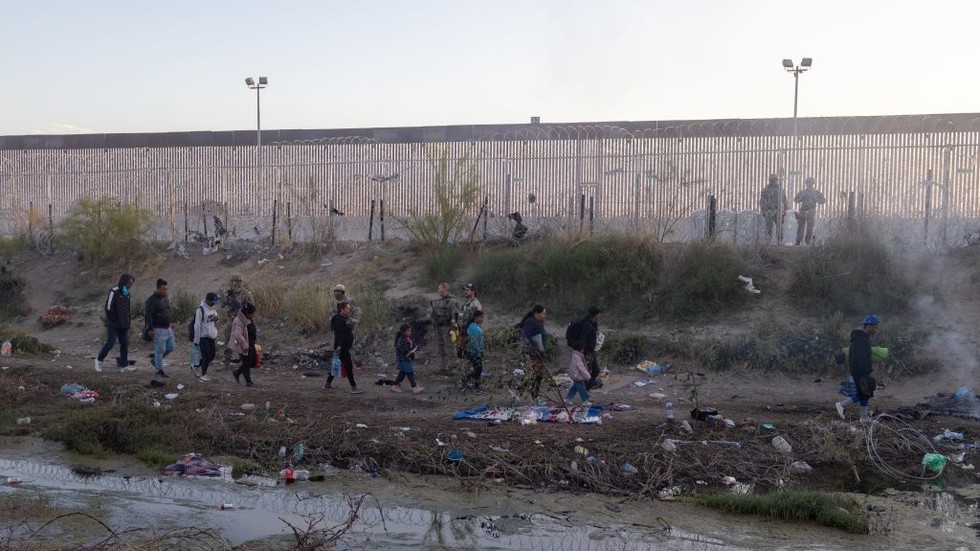PARIS -- French far-right leader Marine Le Pen isn’t on the ballot at the weekend’s European Parliament election, but she’s likely to emerge as one of its biggest winners.
Polls expect her National Rally party to be the top vote-getter in France, trouncing President Emmanuel Macron’s moderate pro-business party. And across Europe, the anti-immigration, nationalist ideas Le Pen has long championed are gaining ground.
The June 6-9 elections in all 27 EU countries will shift the makeup of the European Parliament and policy-making in the European Commission, the EU's executive arm, likely toward the right and far right. That could have lasting impact on the EU — and boost Le Pen's chances of winning France’s presidency in 2027, a long-time dream.
The National Rally’s lead European Parliament candidate Jordan Bardella is riding high on promises to limit free movement of migrants within the EU's open borders, ease up EU pressure on Russia and dial back EU climate rules.
“We stand by the idea of rethinking the European model around the idea of nations. Macron’s Europe is a model of the past,″ Bardella said at a Paris rally Sunday.
Macron’s pro-EU movement meanwhile is flailing, and its chief candidate Valerie Hayer has struggled to make a mark. That’s troubling for Macron as he tries to lead Europe-wide efforts to defend Ukraine and boost the EU’s own defenses and industry.
More popular Prime Minister Gabriel Attal is now joining Hayer at rallies, warning voters that hard-fought post-war European unity — and democracy itself -– is under threat by rising authoritarianism.
’’Europe is mortal, because war knocks on our door as bombs are being dropped on Ukraine, on democracy, on our values, and because we know that if Russia wins it won’t stop there,″ Attal said at a rally last week.
He said Europe knows "it can’t rely on the U.S. eternally and needs to protect itself ... because challenges are multiplying, climate change, big tech, AI, and we can only face them together, the 27 of us.”
While EU voters are choosing members of the European Parliament, many are making decisions based on national concerns – and in France, many are expected to use their ballots to express frustration with Macron’s management of the economy, the farm sector, or security in a country about to host the high-risk Paris Olympics.
On the left, polls show a surprising resurgence of France’s Socialist Party behind its lead candidate Raphael Glucksmann, who pledges more ambitious climate policy and protections for European businesses and workers.
Macron sidelined France’s once-powerful Socialists and mainstream conservative Republicans when he rose to power in 2017 by staking out a middle ground. But frustration among left-wing voters with Macron’s toughening security and immigration policies, and with the staunch pro-Palestinian stance of the influential far-left France Unbowed party, has driven some back toward the traditional Socialists.
Russia's president, Gulf leaders and other oil powers “can well cut supplies of gas or oil, but they can’t prevent the wind from blowing in (the French Atlantic town of) Saint-Nazaire and the sun from shining in Marseille. We will earn our freedom back by completing the environmental transformation,″ Glucksmann told followers last week.
But it’s Le Pen — runner-up to Macron in the last two presidential elections — who is expected to benefit the most from France’s protest vote, as her party did in the last EU elections in 2019. She no longer calls for quitting the EU and the euro, but instead aims to scale back its powers and undo it from within.
"Across Europe, national parties are rising up not to destroy the European Union, but to build a European alliance of nations capable of facing up to the industrial, environmental, migratory and technological challenges of the 21st century,″ Le Pen told party followers last week. “Across France and across Europe, we are winning the battle.''
___
Follow the AP’s coverage of global elections at: https://apnews.com/hub/global-elections/

 5 months ago
17
5 months ago
17








